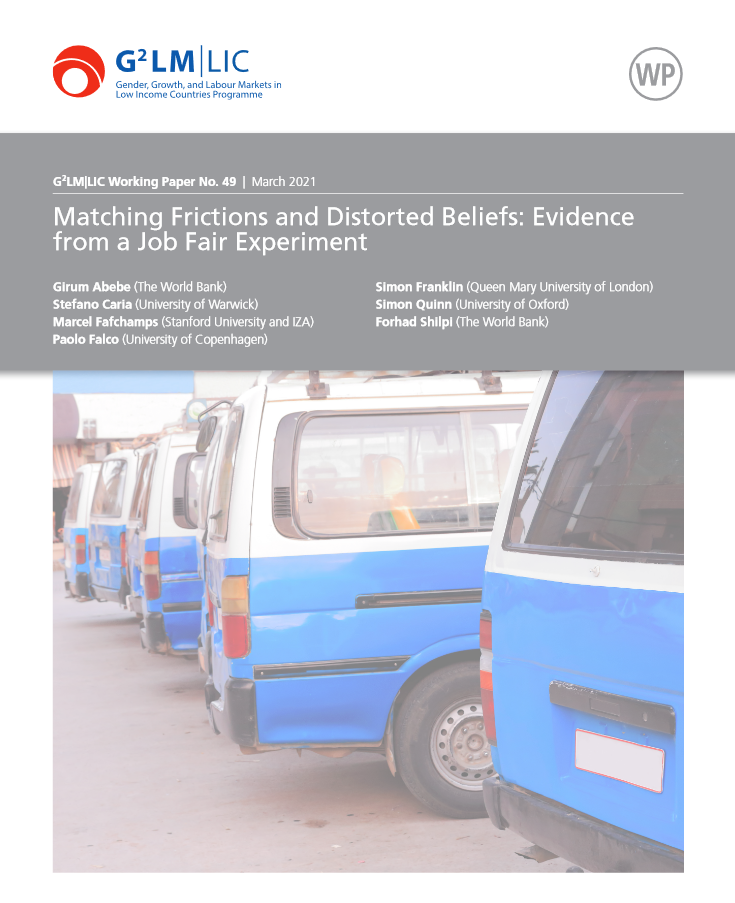Job fairs have been one of the most explored paths to gain entry into the labor market by young entrants. Frictions are likely to be more prevalent in a rapidly growing urban center in a low-income setting. Our new Working Paper No. 49 reports its findings from Addis Ababa, the capital of Ethiopia. In this paper, we evaluate the impacts of a job fair intervention that decreases meeting costs between large firms and young job-seekers, randomizing fair attendance among workers and among firms. The fairs generate a rich set of interactions between workers and firms, but very few hires: one for every twelve firms that attended. On the other hand, the fairs motivate both firms and workers to invest more in job search, which leads to better employment outcomes for some job-seekers. Using data from a unique two-sided survey with a new sample of young workers and firms alongside data from the fairs, we show that these impacts are driven by the fact that both firms and workers have inaccurate beliefs about fundamental aspects of the labor market- in particular, the distribution of skills and the competitiveness of specific occupations, which are corrected at the job fairs. Overall, our evidence suggests that, beyond directly slowing down efficient matching in the labor market, search frictions can impose a second, understudied cost: they entrench inaccurate beliefs, further distorting search strategies and the allocation of talent.
